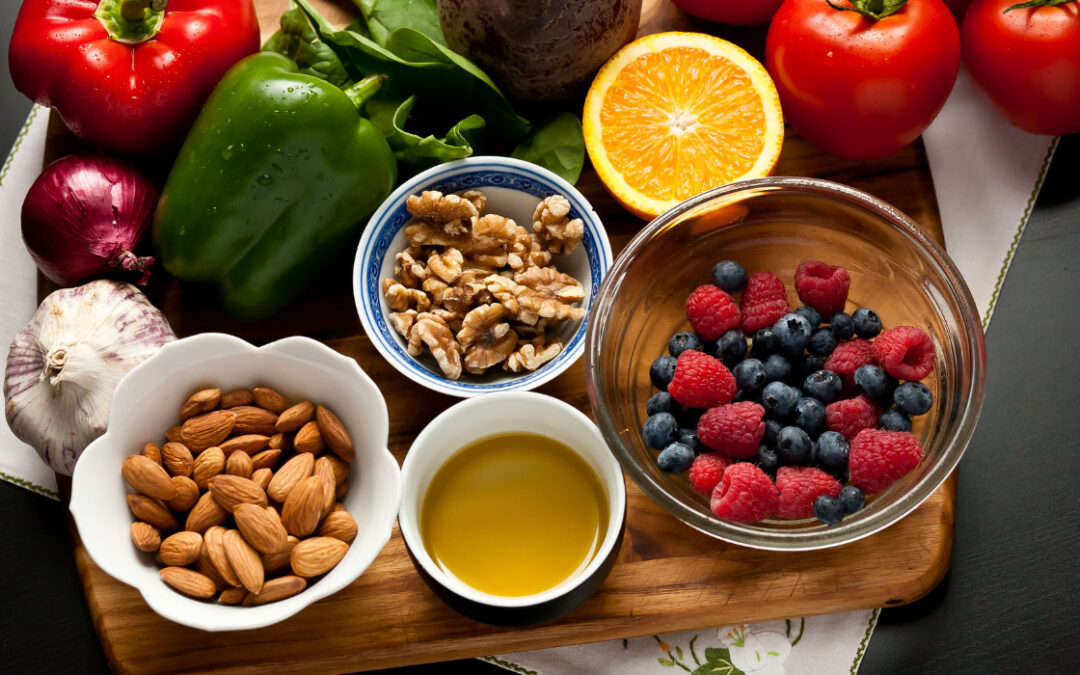If you’re looking for an anti-inflammatory breakfast ingredient for weight loss, it’s important to consider a holistic approach to reducing inflammation in your body. While cutting out foods that cause inflammation is a good first step, it’s not always enough to help you shed extra pounds.
Two key factors that often get overlooked are the quality of your sleep and your stress levels. To truly reduce inflammation, it’s important to also consider the foods you’re eating.
Ask yourself: is your diet clogging or healing you?
Is it dehydrating or hydrating you?
One approach to consider is the concept of WFPB (Whole Food Plant Based) food choices. These foods are water-rich, fiber-rich, and loaded with macro and micronutrients. They are also plant-based, making them an excellent choice for reducing inflammation.
By making WFPB foods 70% of your diet, you can achieve an anti-inflammatory effect and lose weight, provided you also prioritize your sleep and stress levels.
Some examples of WFPB foods include fruits and vegetables (healthy carbohydrates), pulses and beans, healthy nuts, and healthy fats like avocado, flaxseed, and chia seed.
To incorporate these foods into your breakfast routine, you can try making salads, veggie juices, fruit smoothies, beans and veggie soups. Get creative with your recipes and add spices like ginger, garlic, cayenne pepper, turmeric, lemon-lime juice, and other flavorful ingredients that also help reduce inflammation.

By following these guidelines and making WFPB foods a staple in your diet, you can lose weight, boost your energy, and improve your overall health. So why not give it a try and see how it works for you?
In summary, reducing inflammation is an important aspect of weight loss and overall health. While eliminating inflammatory foods from your diet is a good first step, it’s also important to prioritize the quality of your sleep and manage stress levels. Incorporating WFPB foods into your diet, which are plant-based, water and fiber-rich, and loaded with macro and micronutrients, is an excellent way to achieve an anti-inflammatory effect and lose weight.
To get started with incorporating WFPB foods into your breakfast routine, here are a couple of action items to consider:
Swap out your usual breakfast foods with WFPB options such as veggie juices, fruit smoothies, beans, and veggie soups.
Get creative with your WFPB breakfast recipes by adding spices and flavorful ingredients that also have anti-inflammatory properties, such as ginger, garlic, cayenne pepper, turmeric, and lemon-lime juice.
Remember, consistency is key when it comes to incorporating healthy habits into your routine. Start by making small changes and gradually build up to incorporating more WFPB foods into your diet. With time, you’ll start to notice the positive impact these foods have on your health and wellbeing.
FAQs – Anti-Inflammatory Breakfast and Weight Loss
1. Why is inflammation a concern for weight loss?
Inflammation can lead to insulin resistance and metabolic dysfunction, making it harder to lose weight. Reducing inflammation through a healthy breakfast can support weight loss efforts.
2. What are Whole Food Plant Based (WFPB) foods?
WFPB foods are natural, unprocessed plant-based foods that include fruits, vegetables, whole grains, legumes, nuts, and seeds. They are rich in nutrients and can help reduce inflammation.
3. Can an anti-inflammatory breakfast help with overall health?
Yes, an anti-inflammatory breakfast not only aids weight loss but also improves overall health. It can boost energy levels, support digestion, and strengthen the immune system.
4. How can I incorporate WFPB foods into my breakfast routine?
You can start by replacing processed breakfast items with WFPB options like fruit smoothies, veggie juices, and veggie soups. Gradually increase the portion of WFPB foods in your breakfast.
5. Are there specific anti-inflammatory spices to add to breakfast recipes?
Yes, spices like ginger, garlic, cayenne pepper, and turmeric have anti-inflammatory properties. Incorporate them into your breakfast recipes for added health benefits.

6. Can a WFPB breakfast reduce bloating and improve digestion?
Yes, WFPB foods are fiber-rich, aiding in digestion and reducing bloating. They also promote a healthy gut environment.
7. How important is sleep and stress management for weight loss?
Quality sleep and stress management are crucial for weight loss success. Poor sleep and chronic stress can disrupt hormones, leading to weight gain.
8. Can I see results immediately after switching to an anti-inflammatory breakfast?
Results may vary from person to person, but immediate changes in weight loss are unlikely. Consistency is key, and over time, you may notice positive changes in your health and weight.
9. Can children and teenagers benefit from an anti-inflammatory breakfast?
Absolutely! An anti-inflammatory breakfast is beneficial for people of all ages, providing essential nutrients for growth and development.
10. Are there any potential allergens in WFPB foods?
While WFPB foods are generally safe, some individuals may have allergies to certain plant-based foods. Be cautious and consult with a healthcare professional if you have any food allergies or sensitivities.

